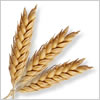Ваш кошик
 South Korea: Barley and Malt Trade, according to AAFC
South Korea: Barley and Malt Trade, according to AAFC
South Korea’s barley production averages about 250,000 metric tonnes, most of which is used for human food. According to Agriculture and Agri-Food Canada (AAFC)’ s figures published on September 9, in 2005-2006 crop year (Oct-Sept) South Korea produced about 260,000 metric tonnes of barley and imported 100,000 metric tonnes. The largest exporter of malt (not roasted) barley to South Korea is Australia. In 2004-2005 South Korea imported 123,000 tonnes of malt.
South Korean coarse grain production is quite small, and consists mainly of barley and corn. Barley’s prominence in South Korean agriculture is due to its close historical relationship with rice. In production, barley is double cropped with rice during the short winter season. In consumption, pearled barley is used as an affordable rice extender: kernels are split, rolled and blended with the more expensive rice to reduce the cost of the product.
In 2004, Canada exported almost 22,000 tonnes of malt to South Korea. South Korea was Canada’s fifth largest market for this product.
In July 2005, Canada formally announced the launch of bilateral free trade negotiations. A Free Trade Agreement (FTA) which would enhance Canada’s important bilateral economic relationship with South Korea would also strengthen our presence in the dynamic northeast Asian region.
Beer consumption in South Korea increased by 2.9% per year over the 1998-2003 period to 27.2 million hectolitres. Per capita beer consumption was about 45 litres (L) in 2003, slightly higher than Japan but low compared to about 84 L in the US.
South Korea has a strategic interest in multilateralism to offset its dependency on immediate neighbours, i.e. China and Japan. South Korea became a member of the WTO in 1995 and a member of the Organization for Economic Co-operation and Development (OECD) in 1996.
South Korea has a “developing nation” status within the WTO. Tariff rates of 342% on imports of barley are currently in place. The government fears that the domestic farming industry could collapse if its markets were opened to lower priced imports.
South Korea imposes tariff rates in the range of 30% to 100% on many agriculture products plus a flat 10% value added tax that it imposes on all imports. There are TRQ which provide minimal access on certain products but the rate for over quota quantities makes the cost of imports prohibitive. The over-quota tariff rate for feed barley it is 327.6% and malting barley is 534%.
Higher beer consumption is expected to lead to increased demand for malt and/or malting barley.
Назад





